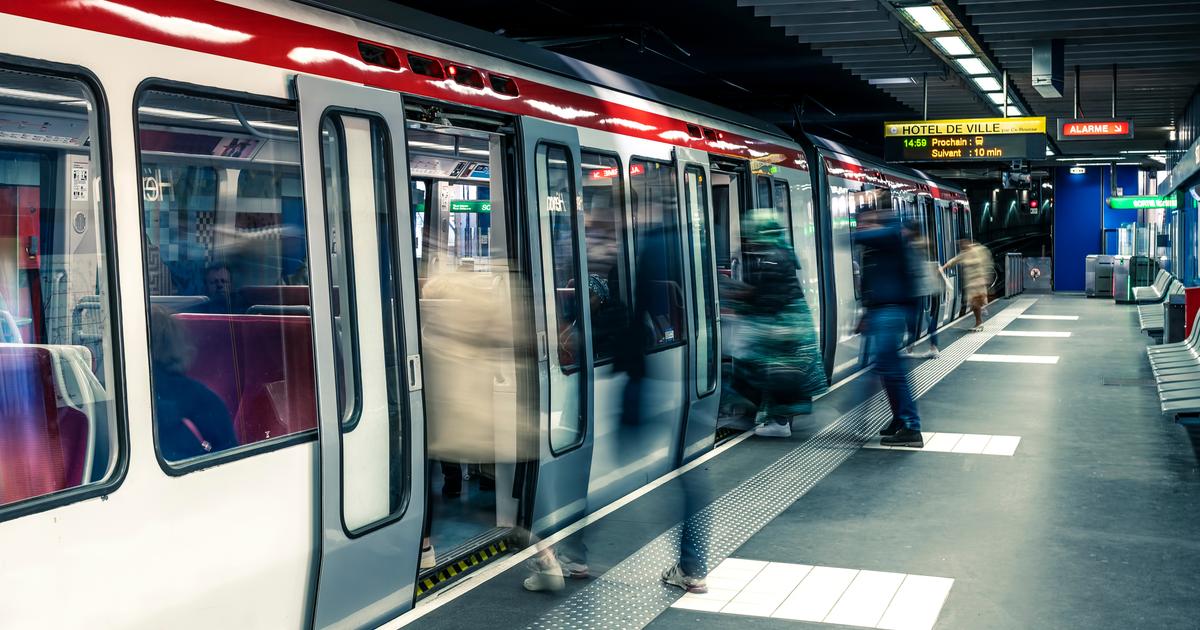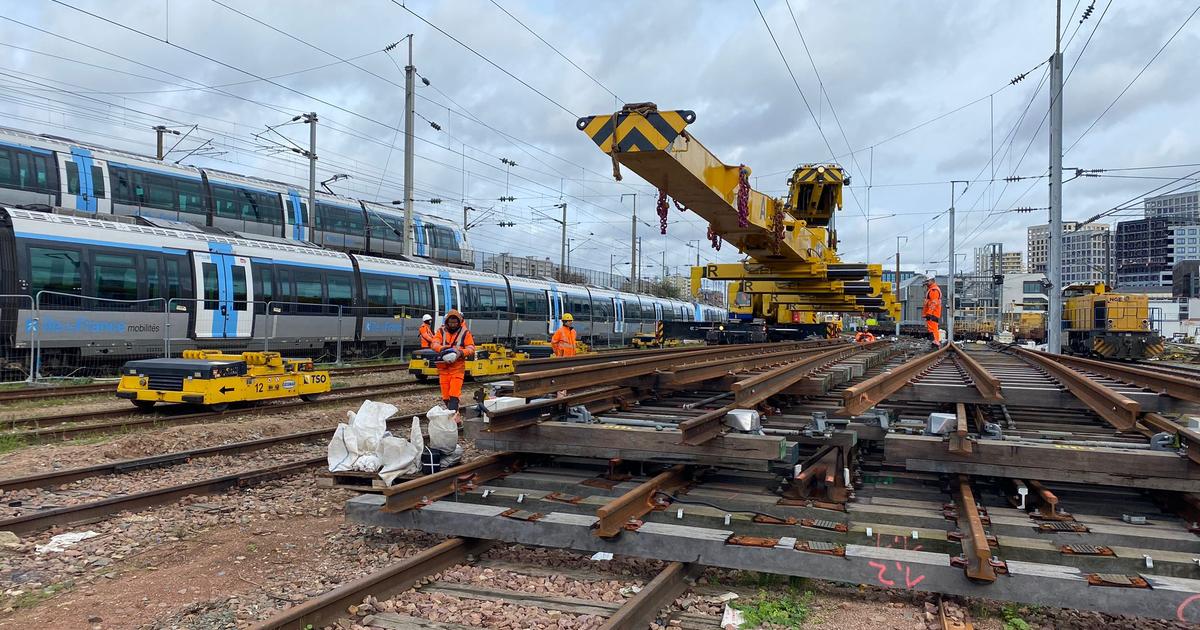It is a letter in the form of a warning sent by public transporters - the Union of public transporters (UTP), RAPT, SNCF, Keolis, Transdev and Agir - to the Prime Minister, Edouard Philippe, Thursday, April 30 . This three-page document, procured by Le Parisien - today in France, follows a previous letter, dated April 17, sent by the same companies to Edouard Philippe.
The companies, "which provide more than 90% of public transport services in France", recommended in particular the compulsory wearing of masks in transport, but "no particular binding measure on the respect of social distancing in public transport". On the first point, they won their case ... but not on the second.
This is the subject of this letter of April 30: respecting the physical distance of one meter between each user, is not achievable as it stands. Edouard Philippe indeed asked them during the presentation of the deconfinement plan, on April 28, at the National Assembly, to "organize themselves to allow, even in the metro, the respect of barrier gestures" "at least for three weeks to come ”.
The necessary mobilization of the police
However, “after several days of work […], it appears that the carriers do not have, today, human means and materials likely to satisfy such an obligation”, loads the mail. If nothing is done to help them, SNCF, RATP, Keolis, Transdev, etc. threaten: "We consider it our duty to inform you of the very high risk of public disorder which will necessarily lead to the cessation of public transport. "
In order to avoid arriving at this point, the operators pose "the mobilization of the police, national and municipal" as an "essential condition for regulating" the flow of users. They join in this the appeal launched by the president of the Ile-de-France region Valérie Pécresse, this Sunday, in the Journal du dimanche, which claims "a reinforcement of 5000 police" in the transport of IDF.
"We too want to transparently alert the government that it is extremely complicated to enforce these barrier gestures," said one of the signatories, anonymously. We cannot do it alone. »Requested this Sunday, SNCF, Transdev, RATP or Keolis (which notably manages public transport in Bordeaux, Rennes and Lyon), simply confirmed the existence of this letter, without commenting.
Capacity limited to “10% to 20%” maximum
Does this mean that we have to postpone the deconfinement date of May 11? “This is not the subject of this letter. What is necessary is to ensure upstream a drastic regulation of flows ”, answers one of the operators. If this were not the case, the carriers consider that they should limit their transport capacity to “10% to 20%” in order to enforce social distancing.
“It pays me” newsletter
The newsletter that improves your purchasing powerI'm registering
Your email address is collected by Le Parisien to allow you to receive our news and commercial offers. Find out more
According to projections made by Le Parisien, for a social distance of one meter in each person to be respected, Paris would have to authorize 160 passengers, instead of 1,000, in each metro train.
Finally, carriers set two other conditions: that their civil and criminal liability should not be engaged through an obligation of result, but only “of means”, and that “coercive measures”, in other words sanctions against passengers, be applied recalcitrant. In this sense, the government plans to endow the security services of SNCF (Suge) and RATP (GPSR) with powers of control and fines. A fine of 135 euros is also provided for in the absence of a mask.
Solicited, the Ministry of Ecological and Solidarity Transition, in charge of Transport, tries to calm the game. "The discussions remain open", he specifies, suggesting that non-compliance with social distancing could also be subject to such a fine. "A decree whose publication should take place during the week will clarify all these points," reassures the ministry.
The letter sent on April 30 to Edouard Philippe
"Prime Minister,
As part of the presentation on April 28 of the government's deconfinement plan before the National Assembly, you indicated that wearing a mask would be mandatory in transport and that operators should at least for the next three weeks, s '' organize to allow, even in the metro, the respect of barrier gestures .
You call on the organizing transport authorities and the transport operators to stop at local level, with the users, the precise application of these instructions, in particular by managing the flows in the event of crowds, by favoring by markings on the ground the good distribution on the quays, by blocking places. It seems to us entirely relevant to postpone this exchange to the local level, given the great disparity of situations.
With regard to compliance with barrier gestures, we are very concerned with the regulatory requirements that may be defined in terms of physical distance.
Indeed, if we have communicated widely since the beginning of the epidemic and are resolved to continue to do so, it is impossible to respect barrier gestures, including physical distance, to meet an obligation of result that could be imposed on operators and / or organizing authorities.
After several days of work and consultation with all the stakeholders, it appears that the transport operators do not today have the human and material resources likely to meet such an obligation, which cannot be met without very strong limitation of flows, the carrying capacity of Vehicles must then be limited to, at most, 10 to 20% of their initial capacity.
An obligation of result on this point would inevitably lead to:
- at the risk, in the event of a large crowd, of having to take decisions at any time to stop the service likely to generate disturbances to public order,
- social tensions on the part of staff (withdrawal rights, assignments, etc.), detrimental to transport companies, the offer of mobility and, in fact, the objectives pursued.
This is why, we believe that, in the mobility basins where this would be necessary, particularly in Île-de-France, only the drastic limitation of the flows upstream of public transport is likely to allow the respect of a physical distance. effective in spaces as in vehicles. Thus, the mobilization of law enforcement, national and municipal, will be an essential condition for the regulation of these flows, carriers can not assume it in terms of their own means.
Likewise, the public authorities should simultaneously take coercive measures to regulate the demand for mobility upstream, such as the obligation to telecommute, the smoothing of arrival and departure times, the obligation to hold a certificate of the employer with the time slot for home-work travel.
In addition, this rule of physical distance will mechanically limit our capacity to transport a number of travelers sufficient for the economic recovery that you are calling for. Even going back to our transport offer, the spacing of one meter would lead operators to an extremely reduced level of service and, in any event, disappointing for users. Paradoxically, such an offer would be degraded compared to the current transport plan and would contradict the objective of deconfinement.
The measures, strictly necessary and proportionate to the health risks incurred, must be appropriate to the transport network to which they apply, failing which, it is our responsibility to inform you that they cannot be implemented and will lead to suspension of operations.
Given the diversity of situations and the period limited to 3 weeks envisaged for these measures, it seems to us neither necessary nor desirable to provide a precise national regulatory framework for respecting physical distance. We consider that it is necessary to refer their implementation, on the one hand, to local exchanges between organizing authorities and operators and to the police power of the prefects, and, on the other hand, to the personal responsibility of each user. Only the compulsory wearing of a mask should be subject to a strict and uniform regulatory framework at the national level.
If the Government nevertheless wished to take national regulatory measures on physical distance, they could only fall under an obligation of means. They should also be the subject of the widest information upstream to future users, in particular as to their effects, which could prove to be contrary to the objective sought in terms of health protection, quality of service, and economic recovery.
We therefore call on the public authorities to define a general framework allowing local variation according to the specificities of each mobility basin and the means available to each transport operator, the diversity of operational situations not lending itself to the enactment of '' a binding regulatory framework defined at national level. Failing that, we consider it our duty to inform you of the very high risk of disturbing public order which will necessarily lead to considering stopping public transport, which is however essential for breaking out of confinement and resuming economic activity.
Thanking you for the attention you will pay to our approach, we ask you to believe, Prime Minister, in the assurance of our high consideration. "
Thierry Maillet , president of the UTP
Catherine Guillouard , CEO of the RATP group
Jean-Pierre Farandou, CEO of SNCF
Edouard Hénaut , CEO of Transdev
Patrick Jeantet , Chairman of the Keolis Management Board
Marc Delayer , administrator of Agir









